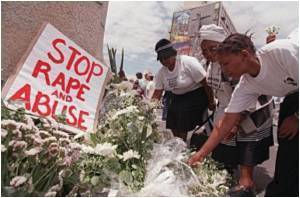A research scholar at Harvard explains the medical reasons why, while being sexually assaulted, many do not fight the attack or scream for help.

In the middle of a sexual assault, the brain is dominated by the fear circuitry almost paralyzing the victim into non-response. During the activated fear period, the prefrontal cortex or the thinking brain is short-circuited into inaction.
The Washington Post’s recent series on college sexual assault and another article in the Harvard Review of Psychiatry indicated that survivors were unable to react during the assault and this non-response is evolutionarily programmed in the human brain. Understanding the neurobiology of trauma is helpful in healing post-trauma.
The “freeze” response is a brain mechanism of sensing danger and going cold during a predatory attack. For example, deer in headlights which simply freezes as vehicles approach. The freeze response is triggered when the brain structure, amygdala senses danger and signals the brainstem (which controls motor responses) to stop all movement. At the same time, the fear circuitry kicks into action with “stress hormones” released into the prefrontal cortex. The prefrontal cortex also freezes as the ability to think rationally is paralyzed by the stress hormones. These responses are automatic and beyond conscious control.
Though the human brain is primed into a “fight or flight” response in the face of danger, such extreme danger like sexual assault and rape actually immobilizes the person into inaction and passivity. When survivors of sexual assault are questioned as to why they did not fight back or escape, they are unable to come up with a suitable response as they experienced the freeze response in the face of danger.
The fear circuitry immobilizes the victim to an extent that she may not even be able to shout for help. In some cases, survivors dissociate from the event and experience a sense of the unreal during the attack. The fear circuitry can also impair memory and many survivors report only a hazy remembrance of the events. Many survivors experience a drop in blood pressure and some may pass out and become unconscious.
It should be understood that the responses triggered from the fear circuitry does not imply consent or cowardice. It must be understood in terms of the neurobiology of fear during extremely stressful and fearful events.
Source-Medindia










